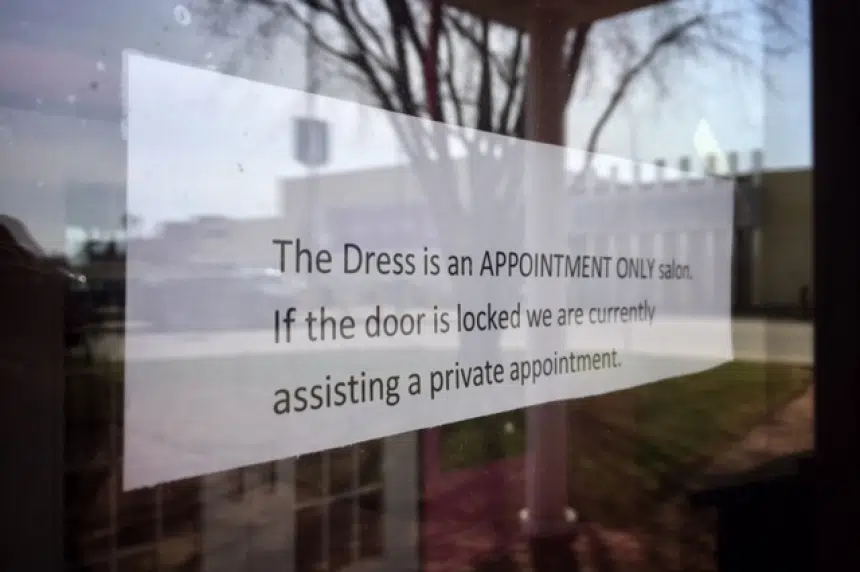It’s almost as though history is repeating itself.
Last June, Champagne Bridal in downtown Saskatoon shut its doors and effectively shut out dozens of brides from getting their dresses for their big day.
It was cut and dry – the owners declared bankruptcy. Brides left in the lurch banded together to find gowns in a pinch. A blow-out sale was held for the remaining store inventory.
Now, brides and grad students are dealing with a bizarre business plan shift at downtown gown shop, The Dress.
Owner Jordan Rothery told 650 CKOM the Saskatoon store is changing to an appointment-only model, but those who purchased goods before the silent switch say they’ve been left in the dark.
“We put a deposit in at the end of February, and they closed the store in March. So I’m thinking they knew they were in trouble and they were still selling dresses,” said Brenda Sandoval, who found out Sunday from a friend the shop was having issues.
“It’s really disappointing.”
Other customers say they’ve struggled to reach the owner, and an array of issues have followed ranging from deposits being taken for orders never placed, to dresses not being delivered on time.
So what can customers do to avoid a similar shopping nightmare?
Bruce Cran, president of the Consumer’s Association of Canada, couldn’t comment on the Saskatoon cases, but said a good start is checking into the history of a business.
“If they’ve been there a short amount of time, I wouldn’t be giving them too heavy a deposit,” he said.
Cran stressed the deposit should be suitable for the goods the person is buying, and urged customers to obtain a contract from the business outlining its deliverables.
“What’s the date of delivery? What are the details of what you’re buying? You’ve got to have all of that,” he said. “You’ve really got to look after yourself here, there’s no one to do it for you.”
In situations where a business has gone bankrupt, Cran noted customers aren’t afforded many options.
“When they go bust, there goes your deposit or anything else,” he said. “Whatever you ordered at the time – whether it was a wedding dress or something like that – you’ve got to go and get a new one.”
If a customer is set on putting down a deposit, Cran recommended using a credit card as an added layer of protection.
“If the goods haven’t been supplied, it’s the plight of the credit card company to get your money refunded,” he said.
As for what help people can receive from law enforcement, Cran said don’t expect any.
“It’s never the police’s job to get your money back,” he said.
He noted that, practically, there’s little chance of getting a conviction in these situations, adding no one is protected against someone going bankrupt.
– With files from David Kirton.







